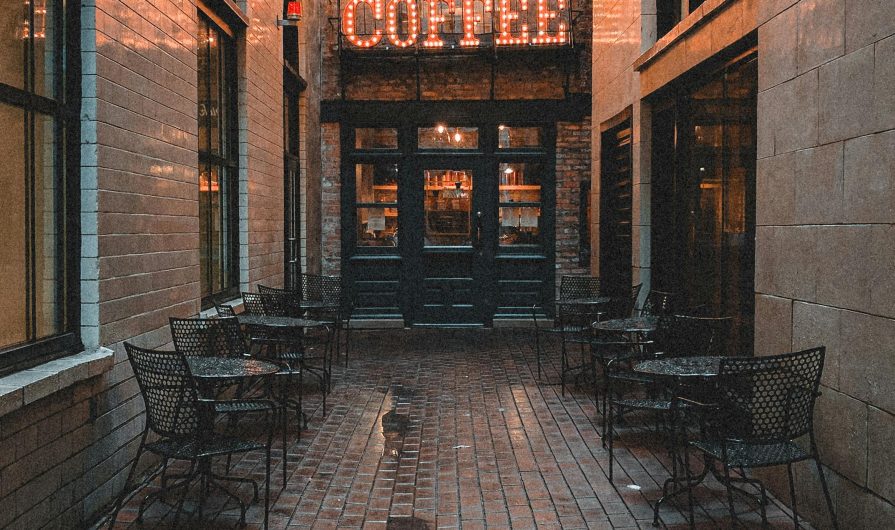I stared down at my laptop, the words a dizzying mess. I took a deep breath, my nose immediately engulfed by the overflowing smell of coffee, freshly baked pâtisserie, and chocolate. As I looked up from my laptop, I couldn’t help but smile. A familiar yet also foreign scene unfolded in front of me.
Storia Classico, a small slice of Italy trapped within the confines of Lygon Street in Melbourne. I had seen this scene so many times: the baristas within their small little island, the steam rising from the machines as they brewed the sweet nectar that filled my mouth. As I looked to the right, the workers were lining the glass with food, getting ready for the upcoming day. To the left, the pâtissiers were doing the same with their beautiful desserts. They were all dressed the same, in that attractive combination of a white shirt, black vest, and black tie. Perhaps I should steal that for one of my characters… why haven’t I thought of that before? I looked back at my screen, and a sigh left my lips; my writer’s block was still there.
Yet, despite how amazing the café itself was, that wasn’t what drew me here every day at seven in the morning. It was the customers. Some regulars whom I saw almost every day, but it was the newcomers who captured my attention. Whether they were drawn in by Storia’s fame or walked in randomly, standing there in awe as they never expected what they had walked into. Seeing those newcomers, especially when they returned, marked by the café or even marking the café themselves, was what fascinated me. Although it felt, at least to me, seemed almost impossible to visit only once, whether a month or even a year passed, they would return, because something no one could doubt was everyone who visited would leave touched by this little slice of paradise.
I traced the edge of my coffee cup, my thoughts drifting. There was something timeless about this place. The walls held secrets, laughter, and whispered dreams. On some of the tables, initials had been carved into the wood—little remnants of past visitors, tiny declarations that someone had once sat there, laughed there, loved there.
I had been going to Storia Classico for years, and in that time, I had seen it change. I remembered when the walls had been bare, the staff more formal, the quiet atmosphere only disturbed by the occasional clinking of cups. It had been a pristine, elegant café, but it lacked the life it held now. The people had shaped this place. The noise, the disorder, the warmth—was all the result of years of people walking in and leaving a piece of themselves behind.
Today, I saw a young couple at the table across from me. I remembered seeing them here a few weeks ago. They had walked in wide-eyed, with the largest smiles on their faces. I had talked to them, and they seemed quite interesting. It appeared like seemed they were back today. I wondered if they remembered me. At that thought, almost as if I had spoken aloud, the man, Jared, waved at me. A smile spread across my face, and I waved back at him. I watched as his girlfriend, Amy, was hyper-focused on what she was doing. I would later find out that she had carved their initials on the table. When I said people left their mark on the café, I didn’t mean it that literally. To me, it was the small changes—the introduction of a new item, the secret menu of coffee made by the returners who had now become regulars. It was the smiles, the environment they created. Five years ago, the café was a lot quieter and more organised, yet the people had made it livelier, and a little messier. Even the workers admitted they preferred this to how it was in the past.
I leant back in my chair, watching the barista at the counter, Marco. He had been here for as long as I could remember. I recalled the first time I met him—his crisp white shirt unwrinkled, his tie perfectly straight. He had been polite, professional, a little distant. Now, years later, his shirt was still white, but his sleeves were always rolled up, his tie slightly loosened. He greeted customers like old friends, even the new ones.
“Hey, Marco,” I called as he passed by my table.
He glanced over, a grin forming. “Morning, writer. Still stuck?”
I sighed dramatically. “Horribly.”
He chuckled. “Well, maybe implementing some history will help.”
I raised a brow, intrigued.
Marco gestured around. “This place has been here for decades, you know? My grandfather used to come here when he first arrived in Melbourne. Back then, it wasn’t even called Storia Classico. It was a tiny café run by an old Italian couple, serving espressos in porcelain cups. My dad used to tell me how it was the first-place immigrants like them found a little piece of home.” He looked around fondly. “Things change, but places like this…” he gestured towards the café, the people, “they carry history with them.”
I glanced around, seeing the café through new eyes. The tiled floors, the wooden chairs, the little imperfections in the tables—they weren’t just signs of age; they were proof of life, of the people who had come before.
I turned back to Marco. “Did your father ever leave a mark?”
Marco grinned. “See that wall over there?” He pointed to a section near the entrance, where faded writing barely peeked through layers of new paint. “He and his friends used to write little notes on the wall when they were young. A lot of them worked at the café, too.”
I smiled, feeling the weight of history settle over me. Every cup of coffee, every table, every mark—it all told a story.
Slowly, I closed my laptop, my hand brushing the “R+P” carved into my table. This place held so many memories. Maybe, in some small way, I had left my own mark, too.
As I walked toward the door, I glanced back one last time. The café hummed with life, with voices old and new. I knew I would be back tomorrow, ready to witness the next chapter in Storia Classico’s ever-growing history.


